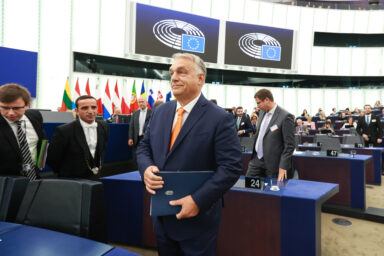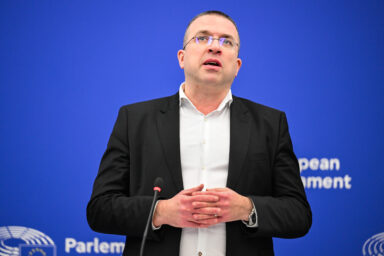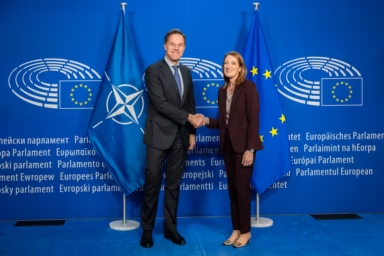Europe’s tech regulation is under fire from Washington, and civil society is fighting back. Non governmental organizations and academics issued separate appeals urging Brussels to stand firm, as American pressure mounts on the Digital Services Act and other digital laws.
The first spark came from Washington. President Donald Trump threatened tariffs, sanctions, and even visa bans on officials responsible for enforcing the EU’s digital rules. The administration characterised the Digital Services Act (DSA), the Digital Markets Act (DMA), and the AI Act as discriminatory. They argue it threatens free speech and unfairly targets American tech companies.
European NGOs ask for firm response
In Brussels, civil society groups were quick to respond. More than 40 NGOs signed a letter to Commission President Ursula von der Leyen, accusing Washington of hiding behind free speech arguments to shield its tech giants from democratic oversight.
European democracy and the rights and freedoms of European citizens are not for sale, at any price. – NGOs letter to President Ursula von der Leyen
The letter says Washington behaves less like an ally and more like an adversary, willing to deploy every tool of coercion to weaken Europe’s regulatory resolve. “These are not the actions of an ally raising legitimate concerns”, NGOs wrote. “They are the acts of an adversary willing to use any means necessary to weaken its opponent”.
The coalition urged Brussels to act. They call for press on investigations into U.S. platforms, activate the EU’s Anti-Coercion Instrument, and consider export controls. “The moment has come for Europe to firmly defend its regulatory sovereignty”, the letter stated. “European democracy and the rights and freedoms of European citizens are not for sale, at any price”.
US Congress aims at Digital Services Act
Across the Atlantic, the backlash has only intensified. On Wednesday, 3 September, the House Judiciary Committee convened a hearing with a title that left little room for nuance: “Europe’s Threat to American Speech and Innovation.”
Chaired by Republican Member of the U.S. House of Representatives Jim Jordan, the hearing painted the DSA as an assault on First Amendment values. Jordan, a vocal critic of EU regulation, has repeatedly argued that Europe’s approach legitimises censorship and risks silencing political dissent.
You might be interested
Ahead of the hearing, more than 30 academics specialising in EU digital regulation and civil liberties issued an open letter to Mr Jordan and Commissioner Henna Virkkunen. They sought to counter what they called “misconceptions” about the DSA.
We write to correct persistent misconceptions that the DSA is a tool for censorship – Scholars’ letter to Member of the U.S. House of Representatives Jim Jordan
In a letter to US lawmakers, the scholars pushed back, calling those claims “persistent misconceptions.” The DSA, they stressed, does not give Brussels power to decide what can or cannot be said online. “The law primarily guarantees users the ability to understand and contest content moderation decisions of platforms, and grants them new ways to control their user experience”, the scholars wrote.
Academics call for more clarity
In a parallel letter to Commissioner Virkkunen, the same group highlighted areas for clarification to prevent future confusion. They recommended to codify the principle of content-agnosticity more explicitly in the DSA and clarify the law’s limited extraterritorial effect.
“Ideally, content-agnosticity could be codified in the text of the DSA”, the letter reads. “The ideal solution would be if the United States and the Eeropean Union concluded a political agreement outlining that neither will attempt extra-territorial application of its speech rules at the expense of the rights of its citizens”.
EU sovereignity on the line
These developments come just weeks after Brussels and Washington signed a trade deal that seemed to leave Europe’s digital rules untouched. However, Trump’s tariff threats, along with the Federal Trade Commission telling U.S. tech giants not to implement DSA, signal that transatlantic tensions over digital regulation are far from over.
The episode shows that diplomatic agreements alone may not be enough to protect Europe’s regulatory sovereignty. That makes the voices of NGOs and academics more urgent to defend the EU digital rulebook against mounting American pressure.











